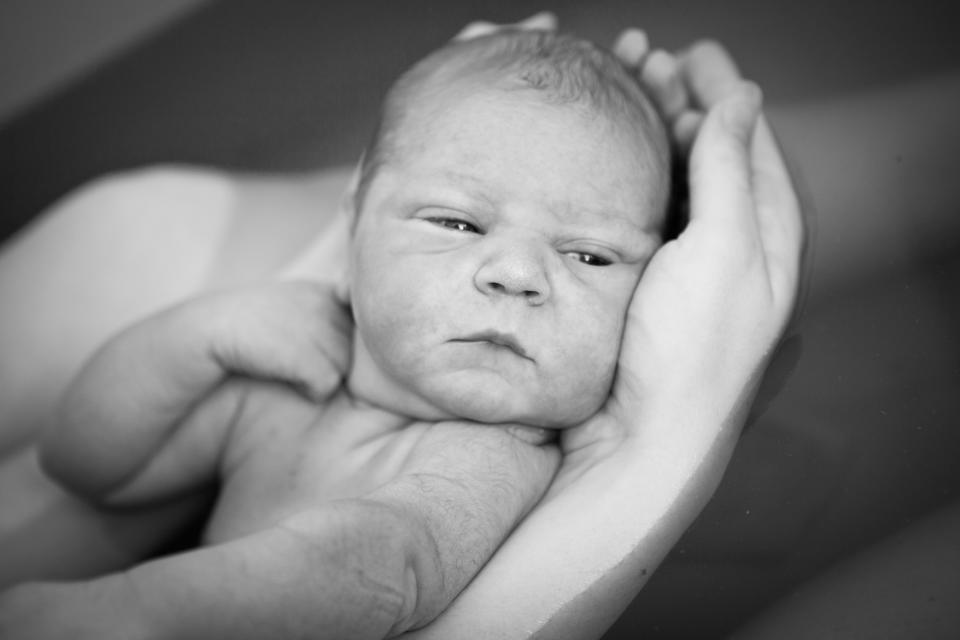Could fears over the coronavirus pandemic lead to a rise in home births?

As concern about the coronavirus pandemic continues to spread, a growing number of pregnant women may consider giving birth at home, experts suggest.
While the Covid-19 situation is causing many to fear for their health, pregnant women due to give birth may be feeling particularly unsettled right now.
Just yesterday, Millie Mackintosh revealed her own concerns about giving birth during a global pandemic.
"With a little under 8 weeks to go until our daughter is due to arrive, the situation the world finds itself in with Coronavirus is very much a concern,” she wrote.
“Even though I’m fully aware that worrying gets you nowhere, it’s understandable to be anxious about my baby arriving during this time, our natural instinct is to protect!”
Earlier this week Prime Minister Boris Johnson revealed that pregnant women were considered “at risk” and should minimise all social contact for up to 12 weeks.
Read more: Pregnant Carrie Symonds self-isolates
But the Royal College of Midwives urged pregnant women to continue to attend antenatal appointments as normal claiming they are “essential to ensure the wellbeing of pregnant women and their babies”.
The government guidance will no doubt have a knock-on effect on women due to give birth shortly and according to one expert coronavirus could change the way we approach and experience birth, likely leading to more women opting for home births.
“As the situation with coronavirus develops across the UK, we're seeing a rise in the number of pregnant women considering a home birth,” Siobhan Miller, founder of The Positive Birth Company explains.
“Women are telling us they are keen to avoid going to hospital for fear of contracting the virus and are also actively looking for ways to manage anxiety and fear caused by the current situation.
“Pregnant women do not appear to suffer more severely than the general population if they contract the virus, nor is there any evidence of vertical transmission where the virus is transferred from the mother to her unborn baby.
“However as it's a new virus there is still a lot of uncertainty and unknowns.”

Read more: Katy Perry, Beyoncé and other memorable celebrity pregnancy announcements
Miller says that in 2017 there were over 13,500 home births (approx 2%) but she is expecting to see a significant increase in this number this year as a result of the virus.
She also believes it might be the catalyst in changing the way we give birth in the future by making more women aware of their options, including having a home birth.
“The NHS is under a huge amount of strain already and this is only set to increase and will impact the ratio of medical professionals available to support patients and birthing mothers,” she explains.
“Opting for a home birth can help to alleviate some worry for expectant mums, especially those who might be concerned about there being no bed or midwife available in hospital.”
Aside from helping to alleviating some fears surrounding the coronavirus, Miller says home birth can offer many benefits to mums-to-be including continuity of care and not having to travel anywhere in labour.
“Being at home also means you have more control over your environment and can can limit how many people are entering your space and manage who you come into contact with,” she adds.
Miller predicts we could also see less people attending group ante-natal classes, leading to a rise in demand for online learning and digital classes that can be completed from home.
“The virus could also lead to a rise in the number of people seeking out the help of a virtual birth partner, especially if there's less one-to-one care available in hospitals or birth centres,” she adds.
“Virtual birth partners, which are available to download to your phone can time your surges, coach you through each surge with a simple breathing technique, play guided meditations and even let you know when your labour is established and when it's time to call a midwife.”
Read more: How to have a home birth

Thinking of a home birth?
Miller suggests getting in touch with your doctor and midwife to talk through the options.
“Be sure to double check with your midwife whether a home birth is suitable for you and your baby,” she says.
“If it is, your midwife will arrange for members of the midwifery team to help and support you.”
Here are some questions you may want to ask:
How long would it take if I needed to be transferred to the hospital?
Which hospital would I be transferred to?
Would a midwife be with me all the time?
How do I obtain a birthing pool?
Who can have a home birth?
According to the NHS you can give birth at home, in a unit run by midwives (a midwifery unit or birth centre) or in hospital.
But your options about where to have your baby will depend on your needs, risks and, to some extent, on where you live.



